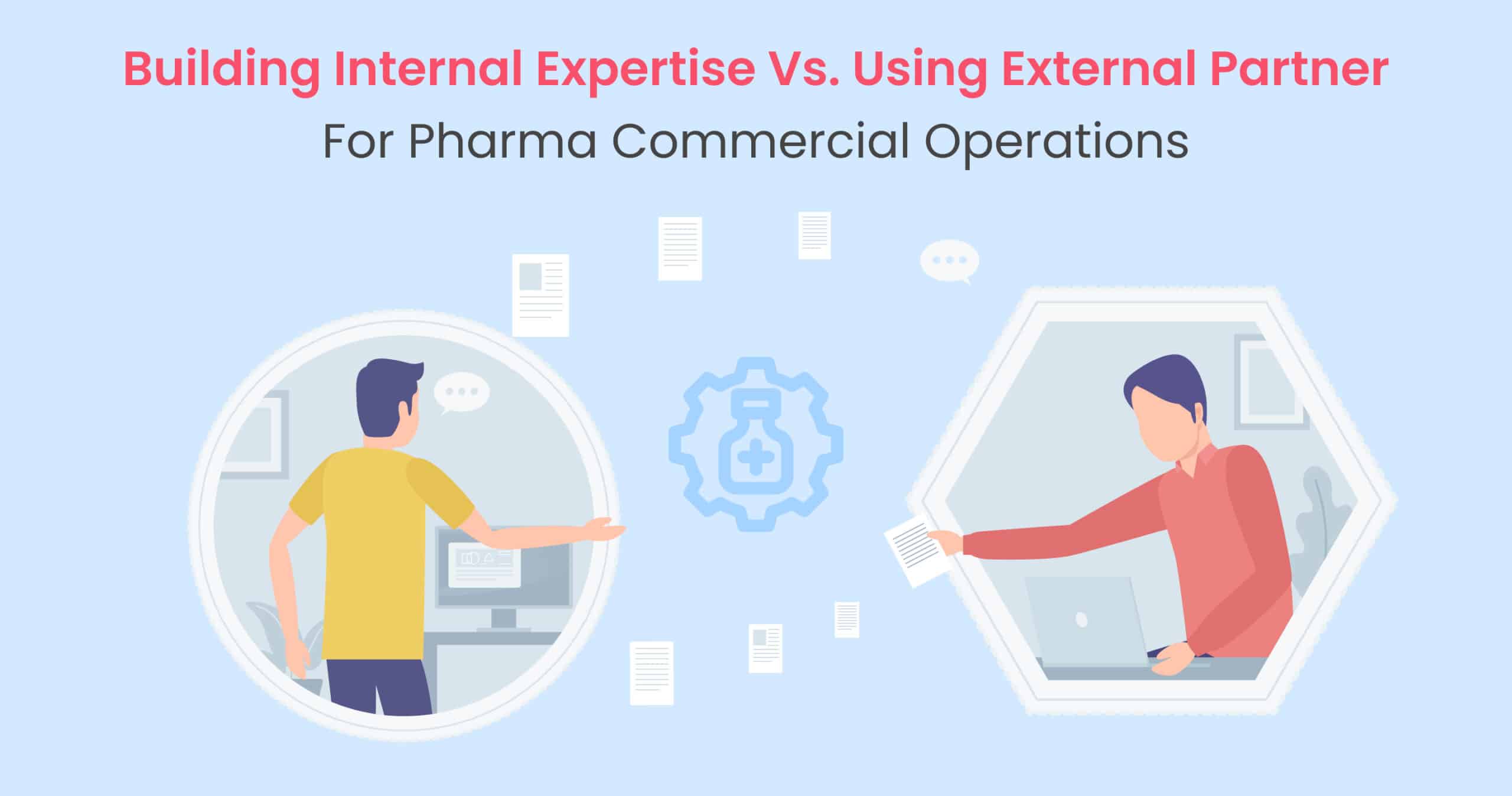The pharmaceutical industry is at a crossroads when it comes to managing drug lifecycles, from launch to maturity. A pivotal decision lies in choosing between building internal expertise and leveraging external partner expertise. This strategic choice significantly impacts an organization’s agility, cost management, and competitive edge.
While building internal expertise offers benefits, partnering with external experts can provide a robust analytics strategy that meets immediate needs and supports long-term success. We take a deep dive into the various advantages of utilizing external partner expertise across all phases of drug development.
What works best for mid-sized and emerging pharma brands?
Access to Expertise
Engaging with external partners grants access to a wide range of expertise across various therapeutic areas and product lifecycles. These partners continuously update their skills and tools to stay at the forefront of the field, providing clients with cutting-edge solutions. According to McKinsey & Company, pharmaceutical companies that utilize external partners for data analytics see a 10-15% improvement in launch performance compared to those relying solely on internal capabilities.
Scalability and Flexibility
External partners offer unparalleled scalability and flexibility. They allow organizations to scale their analytics efforts up or down based on project needs without long-term commitments. This flexibility is particularly valuable for handling peak workloads or special projects that require specialized skills. A 2022 report by Deloitte highlighted that pharma companies utilizing external partners could scale their operations by up to 30% more efficiently during high-demand periods.
Cost Effectiveness
Building and maintaining an internal team comes with significant fixed costs. By leveraging external partners, pharma manufacturers can convert these fixed costs into variable costs. Instead of investing heavily in building and maintaining an in-house team, they pay for services as needed. This approach can be more cost-effective, especially for small to medium-sized manufacturers with limited resources. The International Society for Pharmacoeconomics and Outcomes Research (ISPOR) found that companies using external analytics partners reduced their operational costs by 20-25%.
Faster Turnaround and GTM
External partners bring established methodologies and experienced teams, enabling them to implement analytics solutions more quickly than building internal capabilities from scratch. This results in faster time-to-market (GTM). A study by Boston Consulting Group (BCG) in 2021 revealed that external partners could accelerate the GTM process by up to 40%, significantly enhancing competitive positioning.
Best Practices
Having worked across multiple clients and brands at various stages of the pharma lifecycle, external partners often follow best-in-class practices. This experience benefits new manufacturers by integrating proven strategies and avoiding common pitfalls. For instance, IQVIA reports that leveraging external partners for launch strategy can lead to a 15% increase in market share within the first-year post-launch.
Leveraging AI and Analytics
The role of AI in pharma commercial launches cannot be understated. AI-driven analytics enhance market analysis and strategy development by providing in-depth market insights. These tools help understand market dynamics, patient behaviors, and competitive landscapes, enabling more targeted and effective marketing campaigns. For example, Accenture found that AI integration in commercial launch processes could increase launch success rates by up to 50%.
Moreover, AI enables hyper-personalized marketing strategies, tailoring content and engagement to individual healthcare professionals (HCPs) and patients. This approach increases the relevance and impact of marketing efforts, ultimately driving higher engagement and adoption rates. A 2024 study Deloitte states that leading biopharma companies are already adopting new AI/GenAI technologies and other data innovations across the value chain, while forming new partnerships, collaborating early with regulators, and outsourcing for cost and time savings.
BCG and Google commissioned a report in 2024 which clearly outlined AI (GenAi) as one of the four disruptors contributing to greater efficiency and effectiveness in marketing campaigns. With effective use of AI higher maturity brand could respond with 3.4X responsiveness to market changes, adapt to consumer changes faster (a reduction of 2 weeks from 5), and significantly improve productivity; about 1/3 compared to its what it could 2 years prior.
Real-World Examples
- Pfizer’s AI Integration: Pfizer’s partnership with AI firms has led to significant improvements in their drug launch strategies. By using AI to analyze vast datasets, Pfizer has been able to target marketing efforts more effectively, leading to a 25% increase in market penetration for new drugs.
- Novartis and Data Analytics: Novartis has utilized external data analytics firms to optimize their sales strategies. This collaboration has reduced their time-to-market by 30%, showcasing the importance of expert partnerships in achieving faster results.
- One of our clients in rare diseases partnered with an external analytics firm to navigate their commercial launch. This partnership allowed them to scale their operations flexibly, achieving a successful launch with a 20% lower budget compared to traditional methods.
Conclusion
In conclusion, while building internal expertise has its benefits, the strategic choice to leverage external partner expertise can significantly enhance a pharmaceutical company’s agility, cost management, and overall success. By accessing a broad range of expertise, scaling efforts flexibly, reducing costs, speeding up time-to-market, and adopting best practices, pharma manufacturers can navigate the complexities of drug development more effectively.
The integration of AI and analytics further amplifies these benefits, driving smarter, data-driven decisions that lead to successful commercial launches. As the industry continues to evolve, the strategic use of external partnerships will be a key differentiator for companies aiming to stay competitive and innovative.



